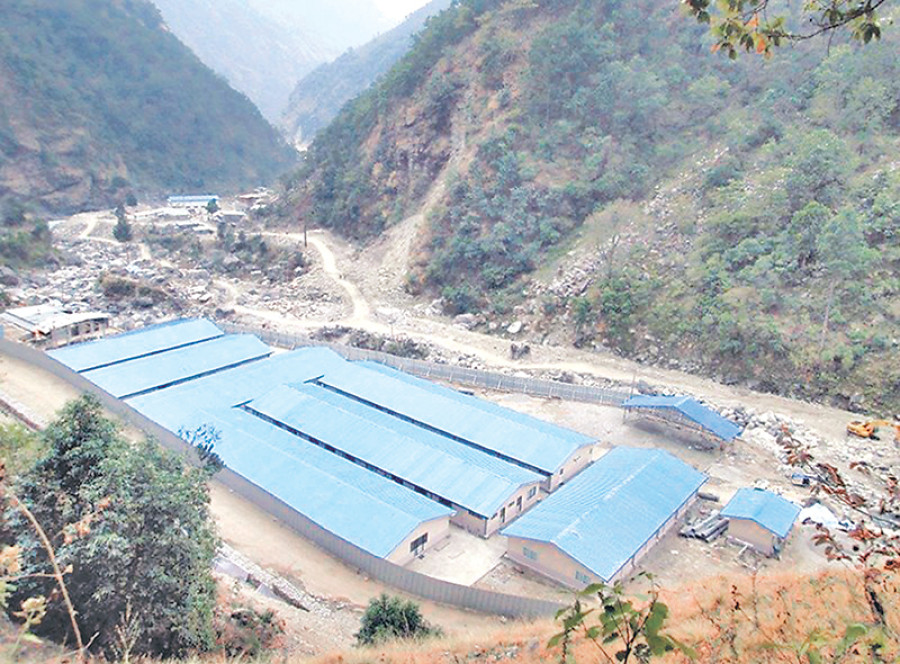Money
Korean JV on track to get licence for Upper Trishuli 1 Hydropower Project
Korean joint venture Nepal Water and Energy Development Company (NWEDC) is on track to receive a generation licence for the construction of the Upper Trishuli 1 Hydropower Project.
Korean joint venture Nepal Water and Energy Development Company (NWEDC) is on track to receive a generation licence for the construction of the Upper Trishuli 1 Hydropower Project.
Last week, the Department of Electricity Development (DoED) recommended to the Energy Ministry to award the permit to NWEDC. The planned 216 MW hydropower plant is located in Rasuwa district in north central Nepal.
As the department cannot award licences to projects with an installed capacity exceeding 100 MW, the DoED had forwarded NWEDC’s application to the ministry.
“The documents submitted by NWEDC are complete, and we have forwarded them to the ministry with our recommendation to award the licence,” said Director General Nabin Raj Singh. “The developer will likely get the generation license within a week.”
NWEDC, however, is not thrilled by the imminent permit as the project is currently in limbo because the deadline to sign a power purchase agreement (PPA) with the Nepal Electricity Authority (NEA), which is a more important milestone in the project development process, has passed.
As per the project development agreement (PDA) signed between the NEA and NWEDC in December 2016, they were supposed to complete the PPA by the end of June, but it did not happen as both parties failed to agree over some points.
A source close to NWEDC claimed that the NEA’s halfhearted attitude was the major reason behind the failure to conclude the PPA deal. “It seems the PPA deal is not in the priority list of the NEA,” said the source.
“Due to lack of the PPA, the project is unable to conclude the financial closure and will miss its original plan to start construction by October 2017.”
International Finance Corporation (IFC), the private sector wing of the World Bank Group and one of the venture partners in the hydropower project, is also concerned about the delay in the signing of the PPA.
Recently, Wendy Werner, country manager of IFC for Nepal, Bhutan and Bangladesh, met Energy Ministry Mahendra Bahadur Shahi and requested him to expedite the PPA.
The NEA said it was working hard to conclude the PPA and the deal would be signed soon after a few contentious issues were resolved.
NWEDC has asked that a force majeure clause be inserted in the PPA under which the NEA will have to pay compensation if the developer fails to meet the contractual obligation due to unforeseeable circumstances like war, strikes or blockades, among other mishaps.
The NEA is not willing to insert the provision in the agreement as it has already been included in the PDA. Likewise, the developer has asked the NEA to bear the hydrology risk associated with the hydropower project and include the provision in the PPA.
If this provision is included in the PPA, the developer will not be fined even if it fails to supply the amount of energy pledged at the time of signing the PPA. The NEA is reluctant to include this provision in the PPA saying that it had already relaxed the hydrology penalty provision under which the developer will not be fined even if it fails to supply up to 50 percent of the pledged energy.




 9.89°C Kathmandu
9.89°C Kathmandu














